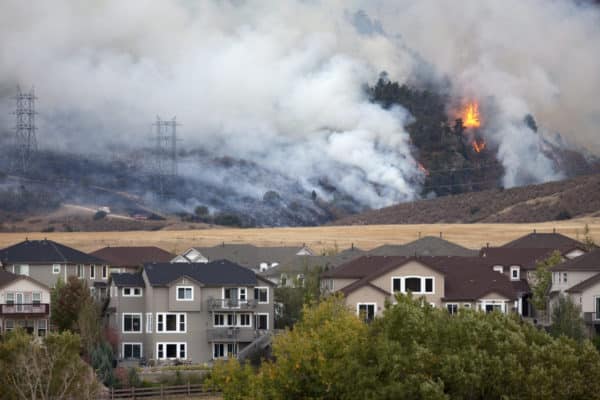The day after a fire, people are usually busy cleaning up their homes, belongings, and themselves. Restoration contractors are working to remove any damage the fire has caused. However, it’s important to know how fires impact indoor air quality (IAQ). Below we’ll go over the key implication of IAQ on our health after a home or business has experienced a fire.
Smoke
Smoke contains a variety of chemicals, including carbon monoxide and nitrogen dioxide. As the smoke fills your home, these chemicals can damage your lungs and other body systems.
Toxic Chemicals
Smoke contains many different toxins, including benzene, formaldehyde, and dioxins. Benzene is a chemical used in manufacturing that has been linked to cancer when people are exposed to large amounts over time. Formaldehyde is used to produce building materials such as plywood and particle board. It can cause burning eyes, headaches, and fatigue. Dioxins are byproducts of burning plastics or other materials that contain chlorine (such as PVC). They can cause cancer and reproductive problems if they are inhaled at high levels for long periods.
Ash
Ash is produced by burning wood, paper, and other organic materials. Ash contains chemicals called polycyclic aromatic hydrocarbons (PAHs). PAHs are associated with lung cancer and other serious health problems.
Soot
Smoke from the fire contains tiny particles of carbon. These particles are known as soot. Soot can irritate your eyes, nose, and throat. Soot also has been found to cause cancer in humans.
Firefighting Chemicals
The chemicals used in firefighting foam, known as PFASs (perfluoroalkyl and polyfluoroalkyl substances), are a concern because they are associated with cancer, thyroid disease, auto-immune disorders, and other health problems.
How Can Toxic Air Affect You
Toxic air can cause several health problems, including asthma attacks and other respiratory issues in people with asthma and those who are sensitive to dust mites, mold, and other allergens. These allergic reactions can be severe and life-threatening.
Exposure to toxic chemicals in the air may also increase your risk of lung cancer, especially if you smoke or work in an environment where you’re regularly exposed to toxic chemicals over long periods. Exposure to high levels of carbon monoxide can increase your risk of heart disease by restricting blood flow through your arteries and causing damage to your heart muscle.
How Can You Deal With Toxic Air after a Fire
After a fire, the air in your home can be toxic. Toxic smoke contains many chemicals that harm your health and your family’s health. While it is important to get out of your house as quickly as possible, it is also very important to take steps to protect yourself and your family from the harmful effects of smoke. The following covers some tips on how to deal with toxic air after a fire in your house.
Clean Your House and Open Windows
Clean up any soot or ash that is on floors and furniture with soap and water before vacuuming or sweeping. This will help keep the dust down in the house for several days until you can have the carpet cleaned professionally. Open windows for ventilation, and turn off air conditioning units until all smoke has cleared from the house.
Wash Your Clothes
Wash clothes worn during cleanup separately from your other laundry. They may contain fire-related contaminants such as asbestos fibers or carbon monoxide released from burning materials or furniture stuffing.
Get an Air Purifier
If you don’t have an air purifier yet, or if yours isn’t working properly, now is the time to call in a professional technician who can install one for you. A professional from A-1 Heating, Air & Electric will know how to set up your new device so that it performs optimally in your home environment. After all, not every model works well with every type of heating system or furnace setup, so make sure that whoever installs your new device knows exactly what they’re doing.
Replace Filters
The other thing to do is replace filters in your heating and cooling system. This will help keep air circulation clean and remove any smoke and ash particles from your home’s ventilation system. You can also buy a carbon monoxide detector to put in every room of your house.
Keep Your HVAC System Maintained
You should also make sure that a professional from A-1 Heating, Air Conditioning & Electric regularly maintains your HVAC system. They will check for any problems with the thermostat and your HVAC unit to make sure everything is working properly so there won’t be any issues with temperature control or ventilation.
A-1 Heating and Air offers complete heating, cooling, and air quality services. We also offer electrical repair and installation services. Contact our office for more information or to schedule an appointment.

